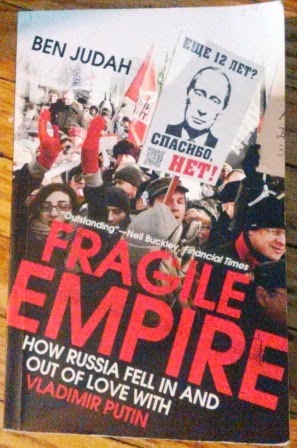While the title of Pierre Vallières' book--part memoir and part political treaties--is quite obviously offensive today, at the time of its publication in 1968 Vallières meant to illustrate what he saw as a striking parallel between the experience of the Québécois and African Americans. Whether or not his parallel goes too far is up to the reader to decide. While I understand Vallières point, personally, I think his comparison takes things a little bit too far.
Pierre Vallières, a Québécois journalist, writer and intellectual, was arrested by American police on the request of the Canadian government while picketing outside the United Nations in New York in 1966. While awaiting deportation to Canada to face what he described as trumped-up murder charge related to his involvement with the FLQ, Vallières hastily penned this book. After serving as his own defense in court, he was sentenced to life in prison. Vallières considered himself a political prisoner, and criticized the court for convicting him of murder based on his political activities and opinions.
In his book, Vallières explains that French-Canadians were--in many cases--forcibly brought over to Canada by the French government, where they were mistreated by first the ruling class, then the Church, and the Anglo-Canadians and Americans. He chronicles how French-Canadians were paid less, denied economic opportunities and treated as a source of cheap labour-- treated like "slaves."
Vallières draws on his own childhood growing up in the slums of Montreal in the 1940s and 50s with no running water, no sewage system, and poor educational opportunities. Driven by the desire to escape a meaningless and oppressive life in which he could only ever hope to be satisfied with "half a loaf," he pursued his education and focused on his writing, while trying to reconcile himself with the Church and with his own nation--Quebec.
Vallières concluded that the only answer for Quebec was a Marxist one. The only path which would allow the Québécois to be free was, in Vallières' view, a path of "radical changes in the relations of production" which could only happen through revolution. By necessity, the revolution would need to be a violent one, and would need to be organized; it would not simply happen on its own.
For Pierre Vallières the FLQ was "the armed avant-garde of the exploited classes of Quebec." He saw Quebec as one piece or front of a global revolutionary movement. Quebec was, to use his words, the avenue through which he had chosen "to pursue the struggle against imperialism."
As a piece of Canadian political history, this book is a gem. Not only does it shed light on one of the many perspectives which drove the separatist movement after the Quiet Revolution in the 1960s, but it also provides a unique look at the FLQ and at the application of Marxist theory in the Canadian political sphere.







.jpg)

















